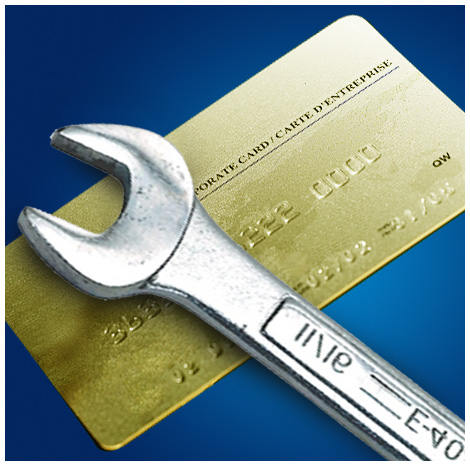 If you are familiar with the Guaranteed Rural
Housing loan offered through the USDA’s Rural Development department, then you
know that the loan program does not require the payment of monthly mortgage
insurance. They do have an upfront “guarantee fee” that is financed into the
loan (although this amount may be paid from the buyers funds at closing).
If you are familiar with the Guaranteed Rural
Housing loan offered through the USDA’s Rural Development department, then you
know that the loan program does not require the payment of monthly mortgage
insurance. They do have an upfront “guarantee fee” that is financed into the
loan (although this amount may be paid from the buyers funds at closing).
This will change on October 1st 2011. Rural Development is
implementing a monthly mortgage insurance premium along with their upfront
guarantee fee. Currently the guarantee fee is 3.63% of the loan amount and
there is no monthly mortgage insurance. October 1st the guarantee fee will be reduced to
2.00% and a monthly factor of .30% of the loan amount paid over 12 months.
So, what does this mean for home buyers? Here is
a comparison:
Current October
1st
|
Sale Price
|
$100,000
|
$100,000 |
|
Loan Amt.
|
$103,630
|
$102,000
|
|
Interest Rate
|
4.500%
|
4.500%
|
|
Loan Payment
|
$525
|
$517
|
|
Monthly M.I.
|
$0
|
$25
|
|
Total Loan Pmt
|
$525
|
$542
|
As you can see, the new monthly payment will be
higher by $17….not really a deal breaker. Especially since this is one of only two zero down mortgage
loans in existence!
As a reminder, the Rural Housing loan offers the
following features to home buyer:
- $0
down payment
- Low
monthly mortgage insurance
- Flexible
credit and qualifying ratios (scores down to 600)
- Seller
can contribute up to 6% of the sale price towards buyers closing costs
- No
pre-payment penalty
- No
loan limits
- Some
counties have geographic restrictions
- Income
restrictions vary by county
So, even though the monthly payment will be
slightly higher on Rural Housing loans after October 1st, it is
still a great option for home buyers!
If you have any question, please feel free to
contact me at 810-987-1200.
This blog is a repost of Jim Papthedore's mortgage blog
 A credit score is an extremely important financial tool. It provides access to the financing you need in order to buy a car, a home, or pay for college tuition, among other things. Since higher scores equate to lower costs and vice versa, it's vital to understand the factors involved in calculating your score. Here are the five elements that make up a credit score, in order of importance:
A credit score is an extremely important financial tool. It provides access to the financing you need in order to buy a car, a home, or pay for college tuition, among other things. Since higher scores equate to lower costs and vice versa, it's vital to understand the factors involved in calculating your score. Here are the five elements that make up a credit score, in order of importance:

 If you are looking to improve your credit score quickly, now is the time to get started. Give us a call. We'll review your credit and find out exactly where you stand and where you need to get to. In the meantime, here are some great strategies you can utilize right away to give your score a little boost.
If you are looking to improve your credit score quickly, now is the time to get started. Give us a call. We'll review your credit and find out exactly where you stand and where you need to get to. In the meantime, here are some great strategies you can utilize right away to give your score a little boost. If you are looking to buy, invest in, or refinance real estate now or in the coming months, your credit is going to play a more significant role in today's tight-fisted credit environment than it has in the past. It's that simple. Would-be borrowers need to address any and all credit issues now to avoid having to pay for it later.
If you are looking to buy, invest in, or refinance real estate now or in the coming months, your credit is going to play a more significant role in today's tight-fisted credit environment than it has in the past. It's that simple. Would-be borrowers need to address any and all credit issues now to avoid having to pay for it later.
 Consumers are often baffled by the home appraisal process. They may feel their home is worth a certain dollar amount, and therefore, the appraised value doesn't make sense to them. It is important to know that appraisal guidelines are dictated by the lenders. In many states, the lenders must disclose the purpose of the appraisal, as each situation carries its own set of rules.
Consumers are often baffled by the home appraisal process. They may feel their home is worth a certain dollar amount, and therefore, the appraised value doesn't make sense to them. It is important to know that appraisal guidelines are dictated by the lenders. In many states, the lenders must disclose the purpose of the appraisal, as each situation carries its own set of rules. Buying
a home can be a complex process, but it doesn't have to be. With a
little preparation, you can save a lot of time and hassle by having all
of your documents ready when your mortgage professional needs them.
Buying
a home can be a complex process, but it doesn't have to be. With a
little preparation, you can save a lot of time and hassle by having all
of your documents ready when your mortgage professional needs them.

 There
is much give and take involved in negotiating a property purchase.
That's why it's important to have a checklist of what you want to get
out of the deal as a buyer. Bear in mind, the home must be appraised and
the lender will be looking at the fair market value on a given
property. Since property values fluctuate, your Real Estate Agent should
do a comparative market analysis so you are aware of what the trends
are for the area in which you are shopping. This will give you an idea
as to whether the seller's asking price is realistic. You will also want
to know how long the property has been on the market, and if any price
reductions have occurred during that time.
There
is much give and take involved in negotiating a property purchase.
That's why it's important to have a checklist of what you want to get
out of the deal as a buyer. Bear in mind, the home must be appraised and
the lender will be looking at the fair market value on a given
property. Since property values fluctuate, your Real Estate Agent should
do a comparative market analysis so you are aware of what the trends
are for the area in which you are shopping. This will give you an idea
as to whether the seller's asking price is realistic. You will also want
to know how long the property has been on the market, and if any price
reductions have occurred during that time.



 Once
your loan package has been sent to the lender, there are a number of
things you should avoid doing that will change your financial picture.
Remember, the lender is looking for stability and consistency. If you
want the best interest rate, keep that in mind. Here are a few things to
consider:
Once
your loan package has been sent to the lender, there are a number of
things you should avoid doing that will change your financial picture.
Remember, the lender is looking for stability and consistency. If you
want the best interest rate, keep that in mind. Here are a few things to
consider: